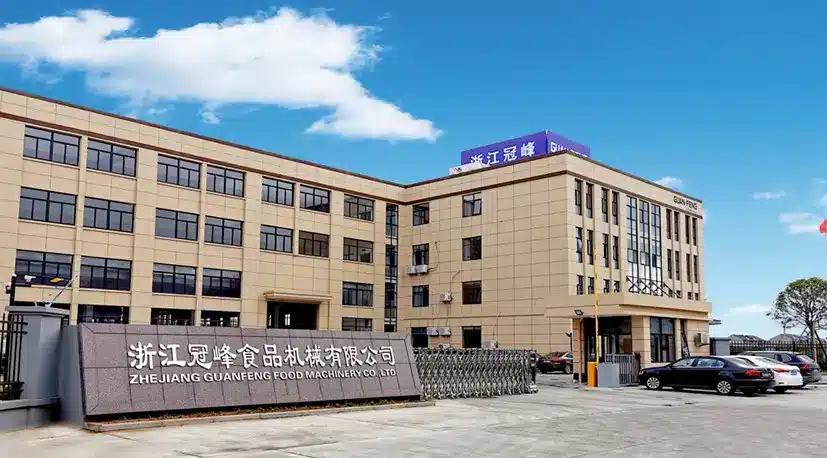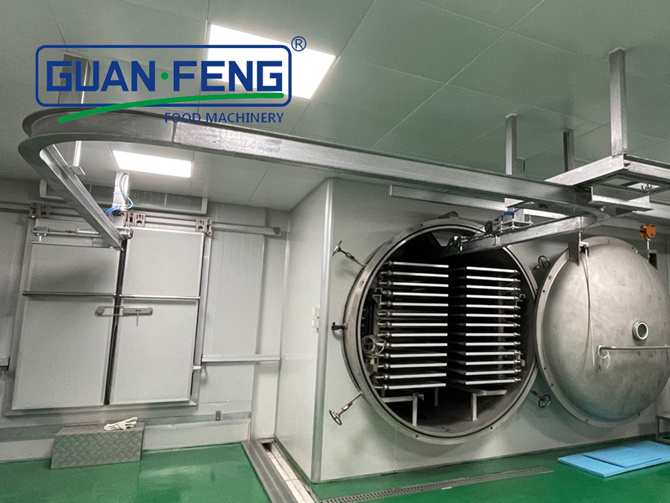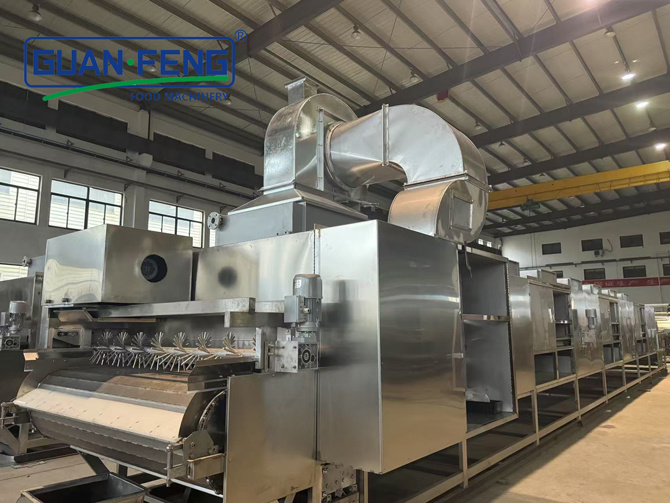BLOG
Focus on hot topics, real-time dynamics
Exploring the Technology of Vacuum Freeze Dryers for Optimal Vegetable Quality
Exploring the Technology of Vacuum Freeze Dryers for Optimal Vegetable Quality
Table of Contents
- 1. Introduction to Vacuum Freeze Drying
- 2. What is Freeze Drying?
- 3. The Science Behind Vacuum Freeze Drying
- 4. Benefits of Vacuum Freeze Drying Vegetables
- 5. Applications of Freeze-Dried Vegetables
- 6. Choosing the Right Vacuum Freeze Dryer
- 7. The Future of Vacuum Freeze Drying Technology
- 8. Conclusion
1. Introduction to Vacuum Freeze Drying
In recent years, the demand for high-quality, shelf-stable foods has surged, paving the way for innovative preservation methods. Among these methods, vacuum freeze drying has emerged as a leading technology, especially in the realm of vegetable preservation. This process not only extends shelf life but also maintains the nutritional integrity and sensory properties of vegetables. In this article, we will explore the technology behind vacuum freeze dryers and how they contribute to optimal vegetable quality.
2. What is Freeze Drying?
Freeze drying, or lyophilization, is a preservation method that involves three main stages: freezing, primary drying, and secondary drying. The process begins with the freezing of the product to create ice crystals. Next, the temperature and pressure are manipulated to allow the ice to sublimate, transforming directly from solid to vapor. This process effectively removes moisture while retaining the product's structure, color, and nutrients.
2.1 The Freeze Drying Process Explained
- **Freezing**: The vegetables are rapidly frozen to inhibit the formation of large ice crystals, which can damage cellular structures.
- **Primary Drying**: During this phase, the pressure is reduced, and heat is applied. This causes the ice to sublimate, extracting moisture while preserving the integrity of the vegetables.
- **Secondary Drying**: This final step further reduces moisture content, enhancing shelf life and preventing spoilage.
3. The Science Behind Vacuum Freeze Drying
The effectiveness of vacuum freeze drying lies in the delicate balance of temperature and pressure. By creating a low-pressure environment, we can lower the boiling point of water, allowing ice to convert to vapor without passing through a liquid phase. This process is crucial for preserving the quality of vegetables, as it minimizes thermal damage and maintains their original taste and texture.
3.1 Key Factors in Vacuum Freeze Drying
- **Temperature Control**: Maintaining the right temperature during the drying stages is critical to prevent degradation of sensitive nutrients.
- **Pressure Regulation**: A vacuum environment is essential to facilitate sublimation and enhance the drying efficiency.
- **Product Characteristics**: The type of vegetable and its initial moisture content can significantly influence the freeze-drying process.
4. Benefits of Vacuum Freeze Drying Vegetables
Vacuum freeze drying offers numerous advantages over traditional drying methods. Here are the key benefits:
4.1 Preservation of Nutritional Value
One of the primary benefits of vacuum freeze drying is the preservation of nutrients. The process effectively retains vitamins, minerals, and antioxidants, ensuring that the vegetables remain healthy and nutritious.
4.2 Enhanced Flavor and Aroma
Vacuum freeze drying helps to lock in the natural flavors and aromas of vegetables, resulting in a product that tastes significantly better than those dried using conventional methods.
4.3 Improved Texture
Unlike traditional drying methods that can lead to tough or rubbery textures, vacuum freeze drying maintains the original structure of the vegetables, making them more appealing and palatable.
4.4 Extended Shelf Life
By removing moisture effectively, vacuum freeze drying significantly extends the shelf life of vegetables, allowing them to be stored for years without refrigeration.
4.5 Lightweight and Space-Efficient
Vacuum freeze-dried vegetables are lightweight and take up less space, making them ideal for storage and transportation. This feature is especially beneficial for the food industry and emergency preparedness scenarios.
5. Applications of Freeze-Dried Vegetables
Vacuum freeze-dried vegetables have a wide range of applications across various industries.
5.1 Food Industry
In the food sector, freeze-dried vegetables are used in ready-to-eat meals, soups, and snacks. Their convenience and long shelf life make them popular among consumers seeking healthy meal options.
5.2 Nutrition and Health Supplements
Health-conscious individuals often incorporate freeze-dried vegetables into their diets in the form of supplements and powdered mixes. These products retain most of their nutritional value, providing a boost to daily nutrient intake.
5.3 Emergency Preparedness
In disaster relief and emergency preparedness, vacuum freeze-dried vegetables play a crucial role. Their extended shelf life and lightweight nature make them a preferred choice for storing food reserves.
5.4 Culinary Uses
Professional chefs and home cooks alike utilize freeze-dried vegetables for their vibrant colors and intense flavors. They can be rehydrated and used in various culinary applications, enhancing the overall dish.
6. Choosing the Right Vacuum Freeze Dryer
Selecting an appropriate vacuum freeze dryer is essential for maximizing the benefits of freeze-drying vegetables. Here are some factors to consider:
6.1 Capacity and Size
Depending on your production needs, choose a freeze dryer with an appropriate capacity. Larger models may be necessary for commercial applications, while smaller units may suffice for home use.
6.2 Energy Efficiency
Look for models that utilize energy-efficient technologies. This can significantly reduce operational costs in the long run.
6.3 User-Friendliness
Consider machines that are easy to operate and maintain. A user-friendly interface can simplify the freeze-drying process, especially for beginners.
6.4 Technology Features
Advanced features such as programmable settings, temperature control, and vacuum monitoring systems can enhance the performance and efficiency of the freeze dryer.
7. The Future of Vacuum Freeze Drying Technology
As the demand for high-quality, shelf-stable foods continues to rise, the vacuum freeze-drying industry is poised for growth. Innovations in technology, such as improved energy efficiency and automated systems, are expected to enhance the performance of vacuum freeze dryers.
Manufacturers are also focusing on developing more compact and cost-effective models, making this technology accessible to a broader audience. Additionally, research into optimizing freeze-drying processes could lead to even better preservation methods, ensuring that more vegetables retain their nutritional and sensory qualities.
8. Conclusion
Vacuum freeze drying represents a significant advancement in food preservation technology, especially for vegetables. By effectively retaining nutrients, flavor, and texture, this method enhances the quality of food products while extending their shelf life. As we look to the future, innovations in vacuum freeze drying technology promise to continue transforming the food industry, ensuring that high-quality, nutritious vegetables are available year-round. Whether for home use, commercial production, or emergency preparedness, vacuum freeze dryers are an invaluable asset in the quest for optimal vegetable quality.
Frequently Asked Questions (FAQs)
1. What is the difference between freeze drying and dehydration?
Freeze drying removes moisture from food through sublimation, preserving more nutrients and flavor, while dehydration relies on heat, which can lead to nutrient loss and altered textures.
2. How long do freeze-dried vegetables last?
When stored properly in a cool, dry place, freeze-dried vegetables can last anywhere from 5 to 25 years, depending on the product and packaging.
3. Can freeze-dried vegetables be rehydrated?
Yes, freeze-dried vegetables can be easily rehydrated by soaking them in water or adding them directly to soups and stews.
4. Are freeze-dried vegetables healthy?
Absolutely! Freeze-dried vegetables retain most of their vitamins and minerals, making them a nutritious option for meals and snacks.
5. Where can I purchase a vacuum freeze dryer?
Vacuum freeze dryers can be purchased from specialized equipment manufacturers, online retailers, and industrial supply companies.
Hot Tags:
PREVIOUS:
Contact Us
E-mail:
sales@syguanfeng.com
Tel:
+86 15088506234
Address:
South Industrial Park of Dongguan, Shangyu District, Shaoxing City,Zhejiang Province,China.
GUANFENG, your customization experts!
GUANFENG FOOD MACHINERY - leading supplier of integrated food processing solutions
Copyright© 2024 ZHEJIANG GUANFENG FOOD MACHINERY CO.,LTD.










